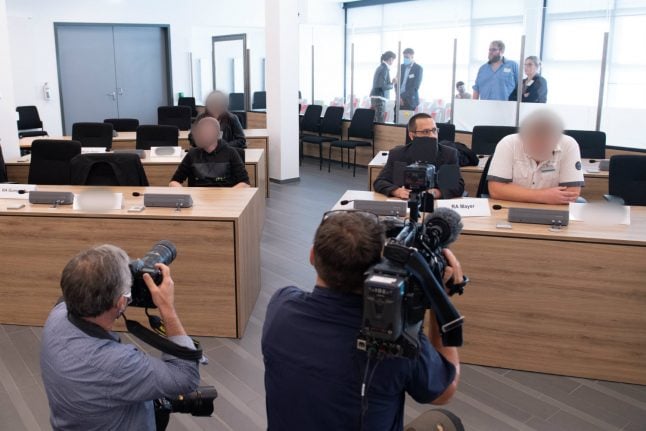As fears grow that the country's far-right scene is becoming more emboldened and violent, prosecutors said the four defendants were members or supporters of the “Freital group”.
Based in a town of the same name in Germany's ex-communist east, it had sought to create “a climate of fear” at the height of an influx of migrants to Germany in 2015, they told the regional superior court in Dresden.
Members are believed to have taken part in attacks that year on the car of a local councillor, the office of a leftist politician and a refugee shelter.
The trial of three men and a woman is scheduled to last until next year.
Two of the men, aged 27 and 53, are accused of “membership of a terrorist organisation”.
The other two, both aged 31, face charges including being accessories of crimes carried out by the group, based in a town of the same name in Germany's ex-communist east.
The same court in March 2018 jailed eight members of the Freital group on terrorism and attempted murder charges. Prosecutors say the current group of defendants belong to a “second tier” of members.
READ ALSO: From the NSU to anti-Semitic attacks – how racist and far-right terror in Germany is rising
Resentment runs deep in Saxony state, a hotbed of far-right activity, over Merkel's liberal refugee policy that led to the arrival of more than a million asylum seekers since 2015.
While Merkel's stance at the time enjoyed broad support across much of the political spectrum, it has since been seized on by the far right to radicalise its supporters.
The latest trial comes just a year after the murder of local pro-migrant politician Walter Lübcke in the western city of Kassel, allegedly by a neo-Nazi.
In October 2019, just months after Lübcke's death, Germany was rocked by a shooting at a synagogue in the eastern city of Halle that left two dead. The suspect later admitted to anti-Semitic and far-right motives.
And in February this year, another gunman shot dead nine people of migrant origin in the central town of Hanau.



 Please whitelist us to continue reading.
Please whitelist us to continue reading.
Member comments